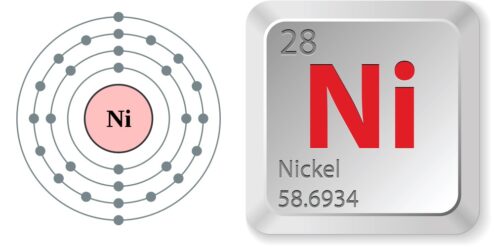Nickel is a naturally occurring, lustrous, silvery-white metallic element. It is the fifth most common element on earth and occurs extensively in the earth’s crust and core. Nickel, along with iron, is also a common element in meteorites and can even be found in small quantities in plants, animals, and seawater. While this may make nickel sound common and ordinary, the role it plays in the human body is anything but ordinary.
Understanding the Role of Nickel in the Body
Nickel plays a crucial role in the human body’s metabolic processes. It is a component of several enzymes, including urease, which breaks down urea into ammonia and carbon dioxide in plants, bacteria, and fungi. In humans, nickel is involved in the breakdown and utilization of proteins. It also plays a role in the production of certain hormones, reproduction, and cell membrane integrity. Despite its importance, the body only needs trace amounts of nickel to function properly.
However, the exact role of nickel in the human body is not fully understood. Some studies suggest that it may play a role in bone health, helping to prevent conditions like osteoporosis. It is also thought to play a role in blood pressure regulation and in maintaining the health of the skin and hair. Despite its potential benefits, excessive nickel intake can lead to health problems.
How the Body Absorbs and Uses Nickel
The human body absorbs nickel through the diet, drinking water, and air. It can also be absorbed through the skin. Once inside the body, nickel is transported to various organs and tissues. It is stored primarily in the kidneys, but can also be found in the liver, lungs, heart, and skin.
The body excretes nickel through urine and sweat. However, if the body’s nickel levels are too high, it may not be able to excrete all of the excess nickel. This can lead to a buildup of nickel in the body, which can cause health problems. The body’s ability to absorb and excrete nickel can be affected by various factors, including diet, age, gender, and overall health.
The Positive Effects of Nickel on Human Health
Nickel has several potential health benefits. It is necessary for the body’s production of red blood cells, and it plays a role in the metabolism of glucose and lipids. It also helps to maintain the health of the skin and hair.
In addition, nickel may have antioxidant properties, which means it could help protect the body’s cells from damage by free radicals. Free radicals are unstable molecules that can damage cells and contribute to aging and diseases like cancer. Nickel may also play a role in bone health, helping to prevent conditions like osteoporosis.
Potential Risks and Side Effects of Nickel Exposure
While nickel is necessary for human health, excessive exposure can be harmful. High levels of nickel can cause a variety of health problems, including skin rashes, respiratory issues, and kidney damage. Long-term exposure to high levels of nickel can also increase the risk of lung and nasal cancer.
Nickel can also cause allergic reactions in some people. Symptoms of a nickel allergy include skin rashes, itching, redness, and blisters. In severe cases, a nickel allergy can cause difficulty breathing and chest tightness.
How to Limit Excessive Nickel Intake
To limit your nickel intake, be aware of the sources of nickel in your environment. Nickel is found in many everyday items, including jewelry, coins, keys, and cell phones. It is also found in certain foods, including nuts, chocolate, and some whole grains.
If you have a nickel allergy, you may need to avoid these items. You may also need to avoid certain types of stainless steel cookware, which can leach nickel into food. If you work in an industry that uses nickel, be sure to follow safety guidelines to limit your exposure.
Nickel Allergy: Causes, Symptoms, and Treatments
Nickel allergy is a common cause of contact dermatitis, a skin condition that causes itching and redness. It is caused by an immune reaction to nickel. Symptoms of a nickel allergy include skin rashes, itching, redness, and blisters. In severe cases, a nickel allergy can cause difficulty breathing and chest tightness.
Treatment for a nickel allergy typically involves avoiding contact with items that contain nickel. This can be difficult, as nickel is found in many everyday items. In some cases, medication may be needed to manage symptoms. If you suspect you have a nickel allergy, it is important to seek medical advice.
Nickel plays a crucial role in the human body’s metabolic processes. Despite its importance, the body only needs trace amounts of nickel to function properly. While nickel has several potential health benefits, excessive exposure can be harmful. It is therefore important to be aware of the sources of nickel in your environment and to limit your exposure if necessary.
Per approfondire:
- World Health Organization: Nickel in Drinking-water: This document provides detailed information on the sources of nickel, its effects on health, and ways to limit exposure.
- National Institute of Health: Nickel: This page provides a comprehensive overview of nickel, including its uses, health effects, and safety information.
- American Academy of Dermatology: Nickel allergy: This page provides information on the symptoms and treatment of nickel allergy.
- Centers for Disease Control and Prevention: Nickel: This page provides information on nickel exposure and health effects.
- National Center for Biotechnology Information: Nickel and its surprising impact in nature: This book chapter discusses the role of nickel in nature and its potential health benefits.


